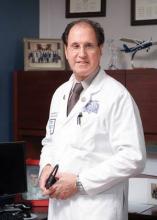"Community hospitals are all over the place because many community hospitals have a bunch of private groups and it’s been a challenge to get them to form heart teams. It’s very politically charged. At other community hospitals the physicians are employees of the hospital. They do a better job because they already have financial alignment," said Dr. Williams.
"Everyone recognizes that where we need to be is organized by service lines and not by academic departments," said Dr. Sundt. "A patient with heart disease wants to be cared for by physicians who deal with heart disease. The patient doesn’t care if they are cardiologists or surgeons, or who is in this group or that group. The patient needs his disease managed by physicians who focus on the patient. That’s what the heart team is. The way to reimburse it is to put all the money into the heart team bucket and then figure out how to distribute it. If CMS set up reimbursement [for revascularization] so that it depended on a heart team" as it did for TAVR, then revascularization decisions would more consistently involve heart teams, he said in an interview.
"Right now, no one pays for [a consult between a cardiologist and surgeon]. The thing that would change this the quickest would be payment reform that rewarded the [heart team] approach," said Dr. W. Douglas Weaver, medical director of the heart and vascular institute at Henry Ford Health System in Detroit.
"Employment by hospitals has driven the process of cardiologists working with surgeons on revascularization cases," Dr. Weaver added. Reimbursement issues could be resolved to some extent by more episode-based payments. What will also drive it is more integration among physicians."
But while compensation for a heart team consult on revascularization might help, and while better-integrated health systems would streamline the delivery of multidisciplinary care, inadequate compensation for participation on heart teams has not been a major roadblock up to now, many say.
"It would be awful if financial misalignment interferes with making the best decisions for patients, but I think the vast majority of cardiologists and cardiac surgeons rise to the occasion" and provide consultations even when they are not paid for it, said Dr. Patrick T. O’Gara, director of clinical cardiology at Brigham and Women’s Hospital in Boston.
"I don’t think reimbursement drives practice. Most cardiologists and surgeons try to do what’s right for the patient. They understand that sometimes they will not get reimbursed," said Dr. Gardner.
TAVR leads the way
Reimbursement for heart team members in revascularization cases may not currently be as well structured as it is for TAVR cases, but in other respects the growing number of TAVR cases and the heart teams that form to treat those cases seem to be having a spillover effect on revascularization. The TAVR experience "has catapulted the collaboration between cardiologists and surgeons in all decision making," said Dr. Weaver.
"A heart team that works together on TAVR sets the stage for collegiality" in revascularization cases, said Dr. Block. "My suspicion is that TAVR relationships will lead to closer communication [between cardiologists and surgeons] because they will see each other more often and have closer ties. The barriers [between cardiologists and surgeons] are breaking down. I don’t know how far that has gone in community hospitals, because TAVR is just beginning at most community hospitals."
It’s reached the community of Dr. May, who has been performing TAVR for a while in his Dallas-area practice.
TAVR programs "foster a significantly improved collaboration between the cardiac surgeons and cardiologists. At a higher level, it has also fostered a much closer relationship between STS and ACC because of their need to work together on guidelines and registry development. So in that regard TAVR has made a big difference," said Dr. May.
"When TAVR is done, everyone [cardiologist and surgeon] is in the room doing a piece of the work. When you talk about collaborative revascularization, you are talking about a decision. So the collaboration is different. With TAVR you work together and develop a combat-level closeness because of the care you all deliver to patients. For revascularization, it is a decision made over a cup of coffee, not in the cath lab," he added.
Dr. May and several others think the collaborative boost powered by TAVR heart teams, and perhaps reinforced in revascularization cases, has the potential to catalyze a more profound shift in cardiac care and professional relationships.
"The experience with TAVR has shown that the most fruitful way for cardiologists and surgeons to go forward is to work collaboratively," continued Dr. May. "That’s a new paradigm, and it needs to be embraced wholeheartedly. It also promotes the idea of doing what is best for patients. It’s not that cardiologists do PCI and surgeons do CABG and we don’t talk to each other. The paradigm shift we have seen with TAVR has tremendous merit."


